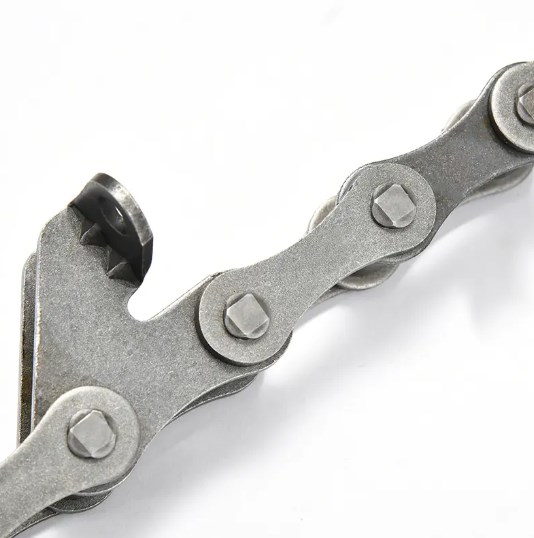In the realm of agricultural machinery, the reliability and performance of chains are paramount. Agricultural chains factory endures rigorous conditions in the field, from heavy loads to exposure to various elements. To uphold the highest standards of quality, agricultural chains factory implements robust quality control systems. In this article, we explore the intricate quality control measures employed in agricultural chains factory , ensuring excellence from production to delivery.
The foundation of a comprehensive quality control system begins with meticulous planning. Agricultural chains factory establish quality control protocols tailored to their specific manufacturing processes, product specifications, and industry standards. Quality control plans outline inspection points, testing methods, acceptance criteria, and corrective actions to be implemented throughout production.
The quality control process commences with the inspection of incoming raw materials. Each batch of raw materials, including steel alloys and surface coatings, undergoes thorough examination to verify compliance with specifications. Material inspectors assess dimensional accuracy, chemical composition, mechanical properties, and surface finish to ensure that only high-quality materials are used in chain production.
At various stages of production, in-process inspections are conducted to monitor the quality and integrity of agricultural chains factory. Skilled inspectors and automated systems perform dimensional checks, visual inspections, and functional tests on components such as links, pins, and plates. Any deviations from specifications are promptly addressed to prevent defects from propagating downstream.
Precision is paramount in agricultural chains factory manufacturing, where components must fit together seamlessly to ensure optimal performance. Dimensional accuracy checks are conducted using calibrated measuring instruments such as micrometers, calipers, and gauges. Critical dimensions such as pitch, diameter, and length are meticulously verified to meet tight tolerances.
Mechanical properties play a crucial role in the performance and durability of agricultural chains factory. Mechanical testing is performed to evaluate tensile strength, fatigue resistance, hardness, and wear resistance of chain components. Tensile tests, hardness tests, and endurance tests simulate real-world operating conditions, ensuring that chains withstand the demands of agricultural applications.
The surface finish of agricultural chains factory is assessed to ensure smoothness, uniformity, and corrosion resistance. Surface finish inspectors utilize visual inspection techniques and specialized equipment to detect imperfections such as scratches, pits, and uneven coatings. Coating thickness is measured using non-destructive methods to ensure adequate protection against corrosion.
Functional testing validates the performance and operational characteristics of agricultural chains factory under simulated conditions. Chains are subjected to dynamic loading, articulation, and engagement tests to assess their functionality, reliability, and resistance to fatigue. Functional tests may include running chains on test rigs or installing them on prototype machinery to evaluate real-world performance.
The agricultural chains factory is exposed to a variety of environmental conditions during use, including moisture, dust, chemicals, and temperature fluctuations. Environmental testing evaluates the resistance of chains to corrosion, abrasion, and degradation when subjected to harsh environments. Accelerated aging tests and salt spray tests simulate long-term exposure to adverse conditions, ensuring product durability.
In conclusion, the quality control system in an agricultural chains factory is a multifaceted framework designed to ensure the consistent delivery of high-quality products that meet or exceed customer expectations. Through meticulous inspection, testing, monitoring, and improvement initiatives, agricultural chains factory upholds the highest standards of quality, reliability, and performance in their products. By prioritizing quality at every stage of production, these factories play a pivotal role in supporting the efficiency and productivity of agricultural operations worldwide.

